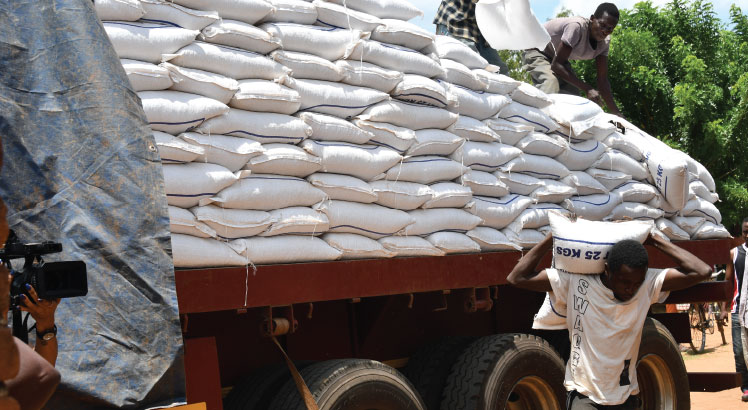The Ministry of Public Service, Labour, and Social Welfare claims to have established a robust and transparent mechanism for distributing drought relief food to make sure it reaches vulnerable communities throughout the country.
This was disclosed by the Deputy Minister of Public Service, Labour, and Social Welfare, Mercy Dinha, during a recent parliamentary session in response to a query from a legislator Mutsa Francisca, regarding measures in place to make sure that food aid reaches its intended beneficiaries without any pilferage.
This development comes as some stakeholders have alleged that some food parcels do not reach the intended beneficiaries but are taken by officials who use them for personal gain or even sell them.
The deputy minister outlined several mechanisms that the government has implemented to maintain the integrity of the food distribution process.
“The government has a mandate to make sure that deserving food-insecure people are reached with assistance,” she said, explaining that the ministry has taken significant steps to mitigate inefficiencies and prevent the pilferage of grain intended for beneficiaries.
One of the key measures Dinha highlighted was the establishment of Drought Relief Committees, which operate at both national and sub-national levels.
Dinha said these committees “have a mandate to supervise and monitor all grain distribution processes.”
She added that the supervision of traditional leaders was also key to making sure the intended beneficiaries benefit.
“The involvement of traditional leaders in the entire distribution process. Traditional leaders, that is chiefs, headmen and village heads are key in all the processes of food distribution,” Dinha said.
“Hence they are there to identify and receive any grievances to do with any mismanagement regarding food distribution;
In addition to these committees, Dinha said the ministry has adopted the Food Deficit Mitigation Strategy Manual, which provides steps on how food distribution should be conducted.
“The adoption and use of the Food Deficit Mitigation Strategy Manual, an implementation guide which gives a step-by-step process to be undertaken from the registration of beneficiaries till the last mile of acquitting by all stakeholders, including the beneficiaries themselves,” she said.
The deputy minister said community involvement is another cornerstone of the government’s approach, adding that any member of the community can act as a whistleblower if they observe anomalies.
“There is also full involvement of all community members in the food distribution process. Food distribution is for the community. Anyone can be a whistleblower where anomalies are observed and the law will take its course as evidenced by cases that are before the courts,” she claimed.
Dinha said the public service ministry has also prioritized the training and capacitation of officials involved in the drought relief programme.
“The officials involved in this programme received capacitation, that is training of trainers for supply chain management which include tracking of trucks, e-management of all the processes from the initial processes of targeting registration, distribution and acquitting of the disbursements done,” said the deputy minister.
“This capacitation aims to improve efficiency, transparency and reduce pilferage of food aid.”
The deputy minister added that another mechanism that the ministry put in place was that no truck carrying grain is allowed to leave the Grain Marketing Deport (GMB) to the distribution point without police escort.
“This is meant to safeguard the food that is intended for the vulnerable people. Lastly, at the distribution points, we have also put in place measures to make sure that grain is delivered and distributed on the same day and during daylight,” Dinha said.

